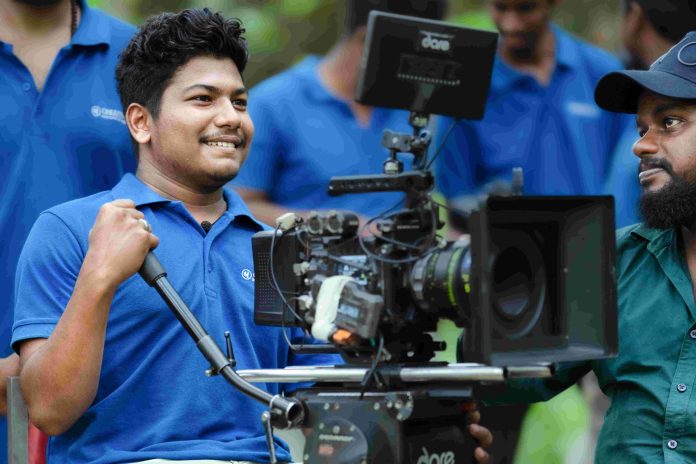Eternal Moments: The Dynamic Universe of Street Photography

Choice: Every one have their own choice
The Soul of Sidewalk Moments
Street photography turns commonplace scenes into remarkable portraits of the human condition by capturing the fleeting moments of everyday life. The goal of art is to capture the multitude of realities that are revealed in each instant that passes, rather than to search for the ultimate truth. The power of a photograph to stop time and capture a single moment that conveys so much about the world’s constant motion is what makes it so valuable.

The Aim: Lady who needs to get something done quickly
Techniques of the Masters: With their distinct aesthetics, street photographers like Robert Frank, Andre Kertesz, and Henri-Cartier Bresson transformed the genre. Bresson’s conception of the “decisive moment” highlights the significance of timing in photography by emphasizing the capture of a fleeting and spontaneous event. Street photography has benefited from the unique perspectives of both Frank’s unvarnished record of 1950s America and Kertesz’s eye for striking juxtapositions. Their output exemplifies the value of fusing technical proficiency with a moment-by-moment intuition.

The Humble: A juice maker with his hope
Contemporary Snapshot Styles
A new generation of street photographers, including Lee Friedlander, Steve Shore, and Gary Winogrand, emerged in the 1960s. They helped to popularize “snapshot aesthetics,” a photography movement that looks for beauty in the commonplace by taking pictures of ordinary subjects. This technique, which encourages a less formal and more sincere way of documenting life, has influenced numerous photographers.

Knowledge: The knowledge have importance in our life
The Vibrant Revolution
The introduction of color to photography gave street photography new perspectives. William Eggleston, who is credited with inventing color photography, demonstrated to the world how vivid colors might give images additional levels of meaning and emotion. Today’s photographers are still experimenting with color and utilizing it to tell stories and create moods.

The FreeTime: Two flower sellers in their rest time
Discovering Undiscovered Treasures
Photographers who pursued photography without the hope of becoming famous or wealthy are shown by the work of Vivian Maier and Fred Herzog. Their posthumous celebrity is proof of both their skill and the ability of street photography to withstand the test of time and distance. Together with the diverse array of photographs from locations such as Pondicherry, their work demonstrates the universal language of photography and its capacity to connect people from different backgrounds and cultures.

Goubert Market: Market named Goubert in pondicherry
In conclusion, a never-ending journey
The field of street photography is still vibrant and ever-changing, expressing both the infinite variety of the environment around us and the complexity of human existence. It’s a kind of art that calls for timing, human understanding, and attention to detail. The fundamental element of street photography—capturing the moment—remains constant despite technological advancements and the emergence of new styles, captivating and motivating both photographers and spectators.
Discover this colorful world, absorb the masters’ methods, and maybe take up a camera to record the ephemeral moments of life as they happen all around you. Who knows? You may discover your pivotal moment in the ebb and flow of moments.

The Deal: A flower seller busy with his purchaser
What makes street photography what it is?
Capturing the ephemeral moments of everyday life and turning commonplace scenes into remarkable images of the human condition is the essence of street photography. It focuses on the multitude of realities that are revealed in each passing moment and how pictures can capture a single moment that conveys so much about how constantly changing the world is.
Which street photographers are the best, and what contributions did they make?
Notable masters of street photography are Robert Frank, Andre Kertesz, and Henri-Cartier Bresson. Bresson highlighted the significance of timing when he proposed the “decisive moment” theory. While Frank’s work offered a candid documentation of 1950s America, Kertesz was renowned for his eye for fascinating juxtapositions. Both artists contributed distinctive styles and techniques to the art genre.
Who popularized "snapshot aesthetics" and what does it mean?
The term “snapshot aesthetics” describes a kind of street photography that aims to capture regular parts of daily life in order to discover beauty in the commonplace. It promotes an open and informal style. Photographers such as Steve Shore, Gary Winogrand, and Lee Friedlander popularized this technique in the 1960s.
In what ways has color photography altered the field of street photography?
Color photography opened up new possibilities for street photography, and innovators like William Eggleston led the way. Color added layers of meaning and emotion to images, making it easier for photographers to portray tone, setting, and story. Color still has an impact on modern photography.
What aspects of street photography are illustrated by the works of Vivian Maier and Fred Herzog?
Photographers who pursued photography without the hope of becoming famous or wealthy can be shown by looking at the work of Vivian Maier and Fred Herzog. Their posthumous success highlights street photography’s timeless ability to speak across time and space, demonstrating the medium’s ability to transcend cultures and historical boundaries.

The Times: Time never stops for anyone
Copyrights:
All the photos and text in this post are copyright of Sanal Sunny , Thrissur Creative Hut Institute of Photography .Their reproduction, full or part, is forbidden without the explicit approval of the rightful owners.


